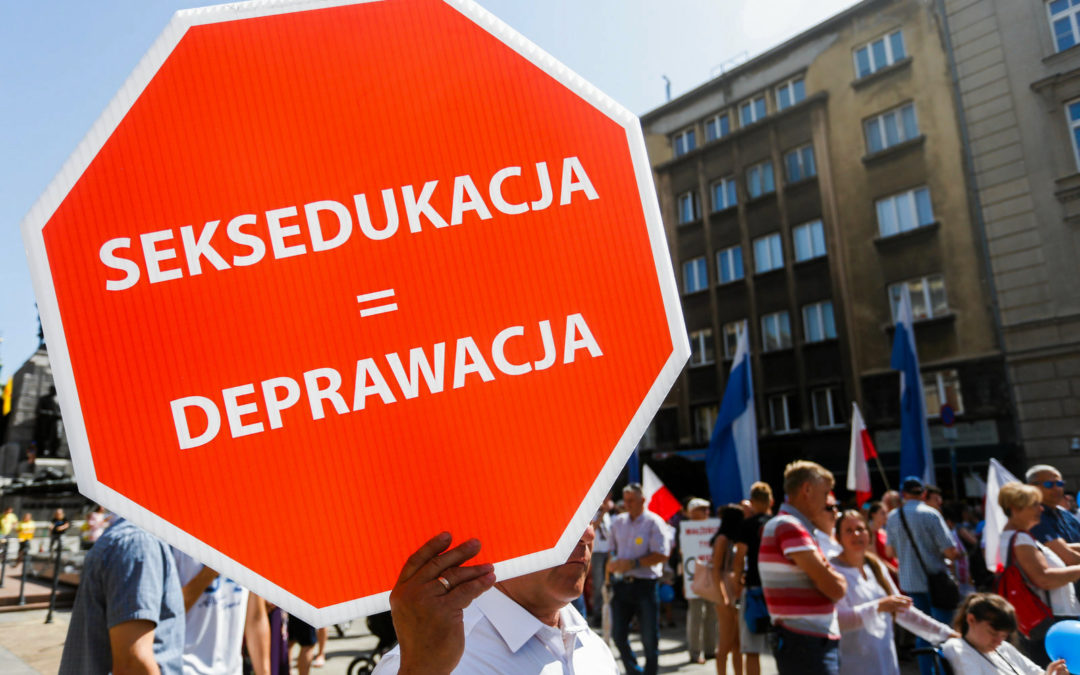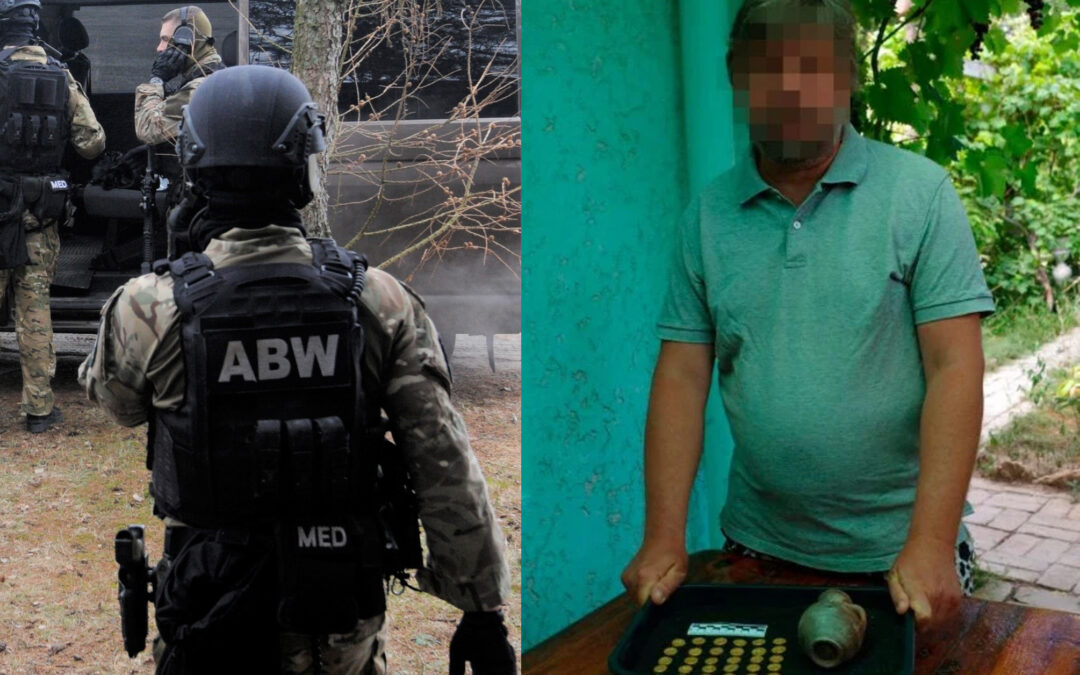The European Parliament has voted to adopt a resolution condemning an “anti-paedophilia” law currently being considered by Poland’s parliament, which critics say will effectively criminalise sex education.
The resolution was passed by a large majority of MEPs, with 471 voting in favour and only 128 against. It describes the proposed Polish law as an “alarming, misguided and detrimental” measure that “de facto seeks to criminalise the dissemination of sexuality education to minors”.
The MEPs suggest that the legislation is contrary to the Charter of Fundamental Rights of the European Union, the Treaty on European Union and the Polish constitution. They call for it be withdrawn, and for the European Council “to address this matter and other allegations of violations of fundamental rights in Poland”.
Among those who voted against the resolution were MEPs from Poland’s ruling Law and Justice (PiS) party, which has expressed support for the proposed law and argues that it is simply an effort to combat paedophilia.
The legislation in question was submitted to the Polish parliament last month as a citizens’ initiative organised by a conservative group, which had collected more than the requisite 100,000 signatures for the bill to be considered by MPs.
The proposed law is presented as a means to “stop paedophilia”. It would jail for up to three years those who “propagate or approve of engagement by minors in sexual intercourse or other sexual activity” while “performing activities related to upbringing, education, health care or care of minors, or operating on school premises or other educational institutions”.
When the bill was discussed in parliament, PiS MPs suggested increasing the maximum sentence to five years.
However, critics point out that its vague wording could allow it to be used against those who teach sex education to children. They also note that the bill’s reference to “minors” (i.e. those aged under 18) would mean it covers those actually above Poland’s legal age of sexual consent, which is 15.
The bill criminalises "propagation or approbation" of any sexual act among people under 18, while the age of consent is 15. So – absurdly – the law could imprison a high-school teacher for giving non-judgemental info about legal acts. Its intent is to criminalise sex education. https://t.co/a9W8FlWZeh
— Stanley Bill (@StanleySBill) October 16, 2019
The justification included with the bill makes clear that “the proposed change [in the law] will provide legal protection for children and young people against sexual depravity and moral corruption… through so-called sex ‘education'”.
The organisation behind it, NGO Fundacja Pro, has previously organised a campaign for parents to pull children out of all sex education classes, which it says are a way of “preparing or perpetrating paedophile offences” and “sexually corrupting children”.
After the legislation reached parliament, it prompted protests around Poland. Some defenders of the law admit that the wording is not clear enough, but they say that this can be addressed during the legislative process.
Protests have taken place around Poland against a proposed law, supported by the ruling party, that could criminalise sex education, with sentences of up to 5 years. The protests were organised quickly after the bill moved forward in parliament yesterday https://t.co/38xvWAuvSP
— Notes from Poland ?? (@notesfrompoland) October 16, 2019
Sex education has become a contentious issue in Poland this year. In February, Warsaw mayor Rafał Trzaskowski signed a declaration of support for LGBT+ people that included a pledge to introduce sex education classes based upon World Health Organization (WHO) guidelines.
Conservative critics condemned the decision, pointing out that the WHO recommends talking to even the youngest children about issues such as masturbation, procreation and gender identity. They claim that his would “sexualise” children.
Some took the argument even further, suggesting that it was part of a deliberate attempt by the LGBT movement to groom young victims for abuse.
These themes were picked up by PiS during its campaign for May’s European elections, and continued into October’s parliamentary elections.
“The sexualisation of children must be fought and defeated,” declared party leader Jarosław Kaczyński, “because it is a civilisational threat to all of Europe, to this civilisation based upon Christianity.”
Poland’s Catholic Church, which has itself had to respond this year to mounting evidence of child sex abuse by clergy and attempts to cover it up, also joined the campaign. The Archbishop of Kraków said in August that “murderous [LGBT] ideology” uses “sex education… to destroy the innocence of the young”.
'We must defend children, so that in Poland the normal family exists' and 'homosexual couples cannot experiment with children by adopting them', said Kaczyński today, who also spoke against educational programmes that 'sexualise' and 'degenerate' children https://t.co/hxcPcN4Yn2
— Notes from Poland ?? (@notesfrompoland) May 11, 2019
Supporters of improved sex education, however, argue that it actually helps to protect children from abuse.
The European Parliament resolution notes that a “lack of information and education about sex and sexuality puts the safety and wellbeing of young people at risk by leaving them more vulnerable and less equipped to identify sexual exploitation, abuse and violence”.
It also notes that Poland is one of eight European Union member states that has not yet complied with WHO’s Standards for Sexuality Education in Europe.
The newly proposed “anti-paedophilia” legislation is “an additional attempt to limit sexual and reproductive rights in Poland in recent years”, and will have a “chilling effect on educators”, says the resolution.
Educators and activists in Poland note that sex education in schools is already very limited. It is part of a class called “education for family life”, which is optional and only allocated 14 hours over the course of a school year.
A report by Ponton, an NGO, found that only 31% of those who teach this subject are biology teachers, with the others coming from a range of other fields, including history (20%) and religion (12%). There is no compulsory training for the subject, notes Gazeta Wyborcza.
A new online campaign, #sexedpl, has launched today, aiming to encourage Poles to speak more openly, confidently and…
Opublikowany przez Notes from Poland Piątek, 27 października 2017
Main image credit: Adrianna Bochenek/Agencja Gazeta

Daniel Tilles is editor-in-chief of Notes from Poland. He has written on Polish affairs for a wide range of publications, including Foreign Policy, POLITICO Europe, EUobserver and Dziennik Gazeta Prawna.




















